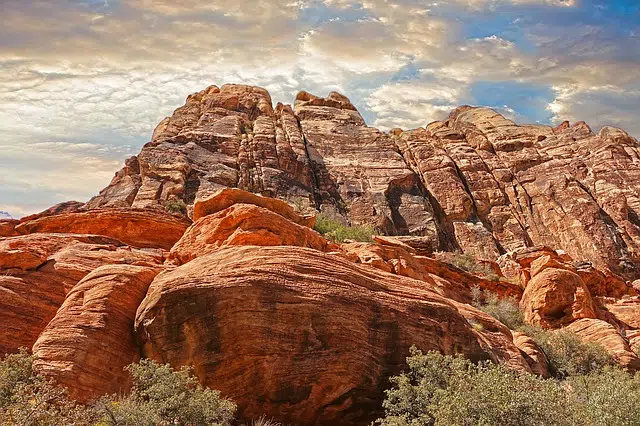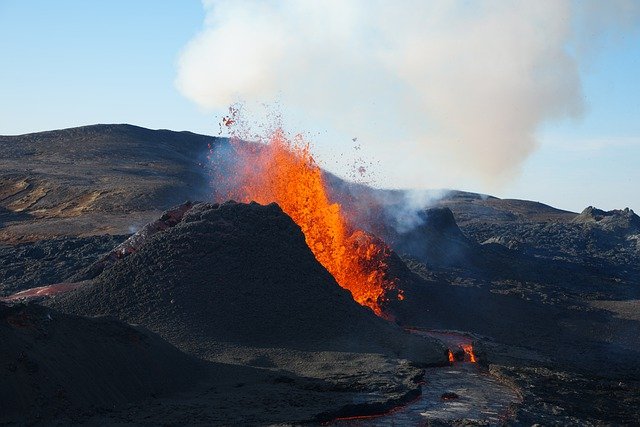
Geology studies the interior and exterior shape of the terrestrial globe.
Geology is a concept that comes from two Greek words: geo ( "earth" ) and logos ( "study" ). It is the science that analyzes the interior and exterior shape of the terrestrial globe . In this way, geology is responsible for the study of the materials that make up the globe and its formation mechanism. It also focuses on the alterations that these materials have experienced since their origin and the current state of their placement.
Throughout history we meet countless figures who have become geologists of great relevance for their discoveries and contributions to this discipline that concerns us. This would be the case, for example, of the German Georgius Agricola , who is known to be considered the father of modern mineralogy.
In the same way, we should not lose sight of the Swiss Horace-Bénédict de Saussure , the founder of mountaineering, or the British Adam Sedgwick , who has been defined as one of the fathers of modern geology.
Branches of geology
Within the geological sciences, it is possible to distinguish different branches and disciplines . Structural geology is that which is dedicated to the study of the structures of the Earth's crust . In this way, it analyzes the relationship between the various rocks that make it up.
Economic geology is responsible for the study of rocks in search of mineral wealth that can be exploited by man . When geology finds the deposits, mining exploitation begins.
All this without forgetting planetary geology either. A geological branch that has celestial bodies as its object of study, analyzing both comets and planets , meteorites or asteroids .
Historical geology , for its part, studies the transformations of the Earth , from its origin to the present. To facilitate analyses, geologists have made chronological divisions such as eras, periods and ages, among others.

Vulnalogy integrates geological sciences.
Paleontology and other disciplines
It is possible to list multiple disciplines that are related to geology. One of the best known is paleontology , which, starting from the discovery and analysis of fossils, proceeds to study and interpret the past of our planet.
Caving is another of the most significant disciplines that exist within the science that concerns us or that are linked to it. In this case, it is responsible for carrying out the study of the natural cavities that exist in the subsoil. That is, it is responsible for analyzing the different caves in depth.
In the same way, we also find gemology which, as its name indicates, has the clear objective of proceeding to study and analyze gems in depth.
Earthquakes and the propagation of seismic waves, meanwhile, are studied by seismology . The rock breaking process, responsible for the release of seismic waves, is one of its main points of interest.
Volcanoes , magma and lava, on the other hand, belong to the field of volcanology . This discipline observes volcanic eruptions and tries to predict them.
It should also be noted that astrogeology or exogeology is responsible for applying geological techniques and knowledge to celestial bodies such as planets, comets and asteroids.
Expert word
The Spanish geologist Nahúm Méndez Chazarra trained at the University of Granada . Author of the books "A geologist in trouble" , "Everything you need to know about geology" , "History of volcanoes" and "History of Rare Earths" , he is not only oriented towards academic research, but also dedicated to scientific dissemination through the media and social networks.
– How do you work to bring geology closer to people? What strategies do you appeal to?
I try to approach geology from different media. On the one hand, through dissemination on social networks, which allows us to reach practically audiences of all ages. On the other hand, through radio and television - such as in the "Órbita Laika" program on Radiotelevisión Española - and general media, taking advantage of every occasion that requires it to talk about the importance of geology in our contemporary world. And, finally, through talks in schools and institutes to publicize geology.
Nahum Mendez
– How can geology help anticipate or prevent natural disasters?
Geology is essential when it comes to better understanding what type of adverse phenomena a region may face and what measures may be that help us prevent or mitigate their effects. We cannot prevent a volcano from erupting or an earthquake from occurring, but we can anticipate what its effects may be and try to adapt our way of life to the effects we expect and thus avoid suffering, if they occur. damage or human loss.
Nahum Mendez
– What advances could be achieved in the short or medium term in the study of the geology of other planets thanks to the development of artificial intelligence or other technologies?
Well, right now I believe that we are in a phase of dreaming that countless things can be done with the development of artificial intelligence... From more autonomous robots that can make decisions on their own without the need for such direct intervention from Earth, to automatic mapping systems that allow us to choose the most interesting places on planetary surfaces so that we can study them more thoroughly or take samples of areas that may be of great value, there are thousands of things we could do. Of course, to reach this point there is still a large economic investment needed.
Nahum Mendez
